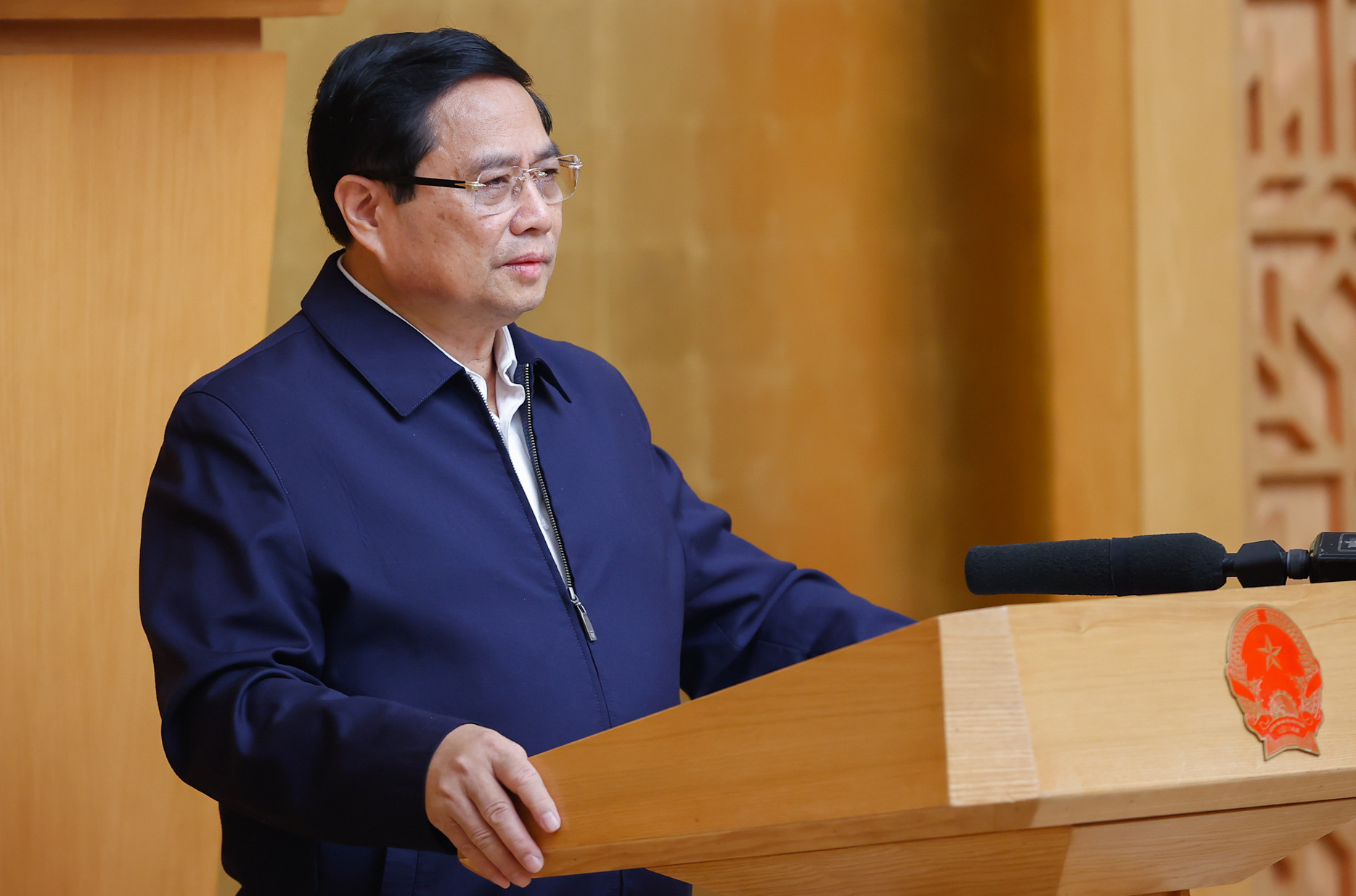
Prime Minister Pham Minh Chinh has emphasized the need for a shift in legislative thinking to streamline governance, reduce intermediaries, and eliminate redundant procedures.
He proposed assigning each task to the individual or entity best suited for it, rather than overloading responsibilities, to enhance efficiency and effectiveness.
This directive came during the January 7 special government meeting on lawmaking, where critical topics related to the restructuring of government machinery were discussed.
Streamlining lawmaking processes
Prime Minister Chinh urged ministers to prioritize resources and expedite the preparation of draft laws and resolutions for submission at the 9th extraordinary session of the National Assembly, scheduled for February 2025.
He emphasized that institutional reforms are vital for development but currently remain a bottleneck.
The Prime Minister called for a comprehensive investment of time, effort, and human resources in legislative work, stressing the importance of removing obstacles to mobilize national resources for progress.
He advocated for a legislative mindset that is both effective in governance and conducive to openness, fostering innovation and creativity.
The Prime Minister highlighted the importance of clarity in legislative principles: what is prohibited must be clearly stated in the law, while what is not prohibited should be allowed for citizens and businesses.
He also stressed the need to avoid a rigid "prohibit what cannot be controlled" mindset and to entrust capable individuals and enterprises with tasks they can handle effectively.
Eliminating inefficiencies
To modernize governance, the Prime Minister instructed ministries and agencies to:
Remove the "ask-give" mechanisms that enable corruption and group interests.
Reduce administrative procedures and compliance costs for citizens and businesses.
Leverage technology and digital transformation to minimize direct interactions that may lead to petty corruption.
He urged government agencies to focus on strategic functions like state management, planning, policy-making, and oversight, avoiding the delegation of excessive specific tasks.
Assignments should adhere to five principles: clarity of roles, responsibilities, timelines, deliverables, and accountability.
The drafting process for laws and regulations must incorporate feedback from stakeholders, experts, and those affected by the laws. International best practices should also be considered, and communication strategies should be robust, especially for complex or novel issues.
Reviewing existing laws
The Prime Minister instructed a review of current laws to address outdated or impractical provisions and ensure alignment with real-world needs.
Bottlenecks should be resolved at the appropriate level of authority, and matters beyond their jurisdiction should be escalated to higher authorities for resolution.
The government is focusing on seven key legislative proposals, including:
Amendments to the Law on the Organization of the Government.
Amendments to the Law on the Organization of Local Governments.
A National Assembly resolution on the establishment of several new ministries for the 15th Government term.
A National Assembly resolution on the composition of Government members for the 16th National Assembly term.
A National Assembly resolution addressing emerging legal issues related to restructuring government organizations.
Amendments to the Law on Promulgation of Legal Normative Documents.
A draft law on Vietnam’s participation in United Nations peacekeeping forces.
Thu Hang